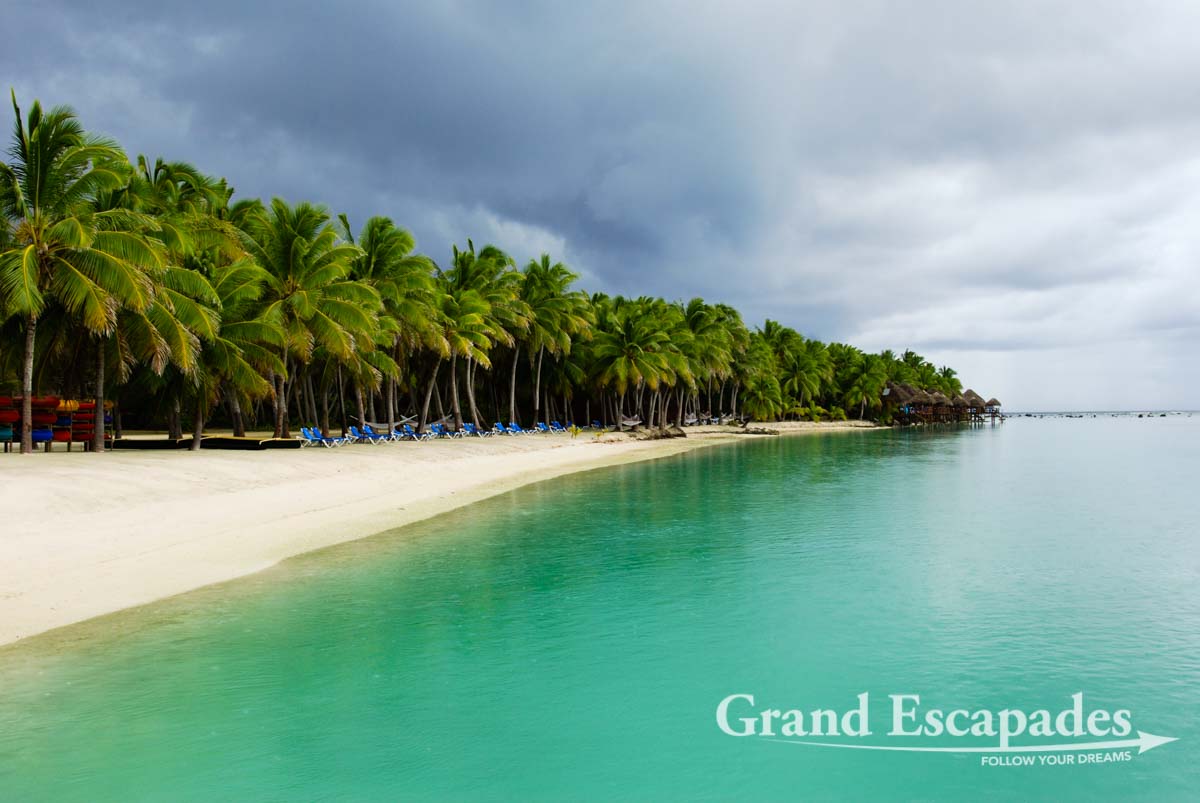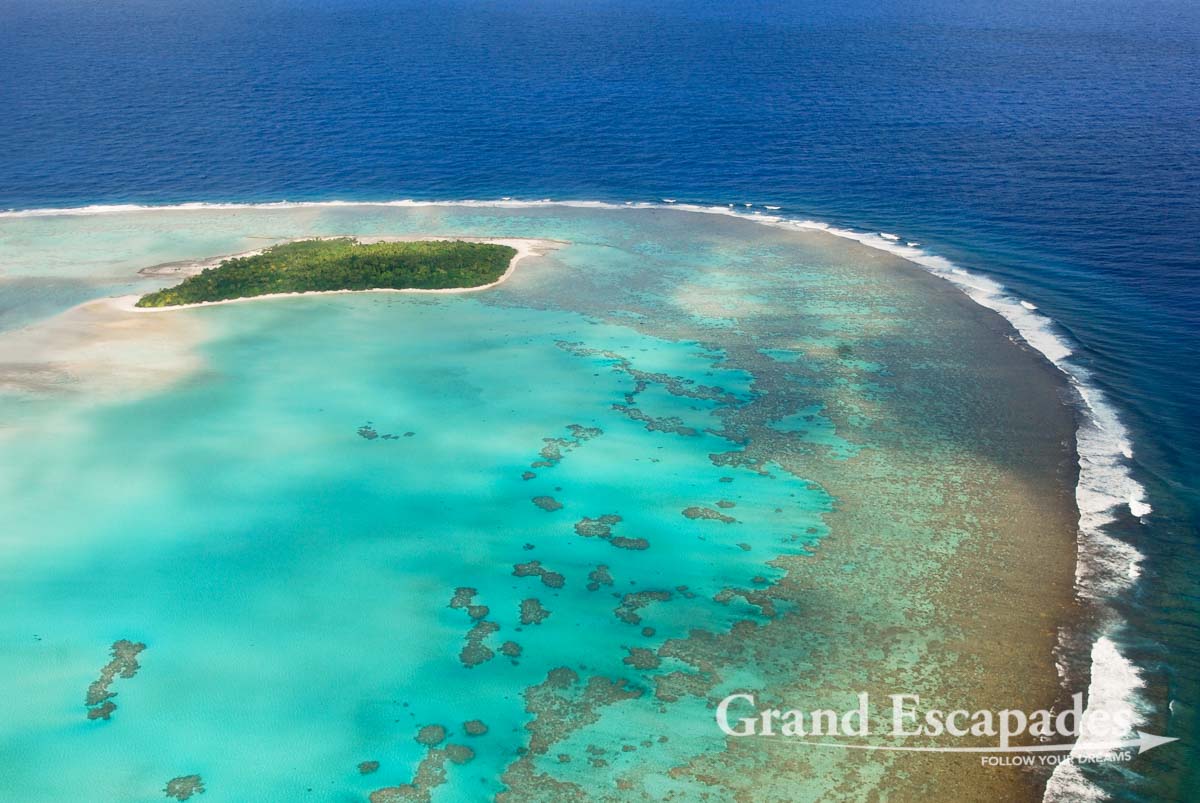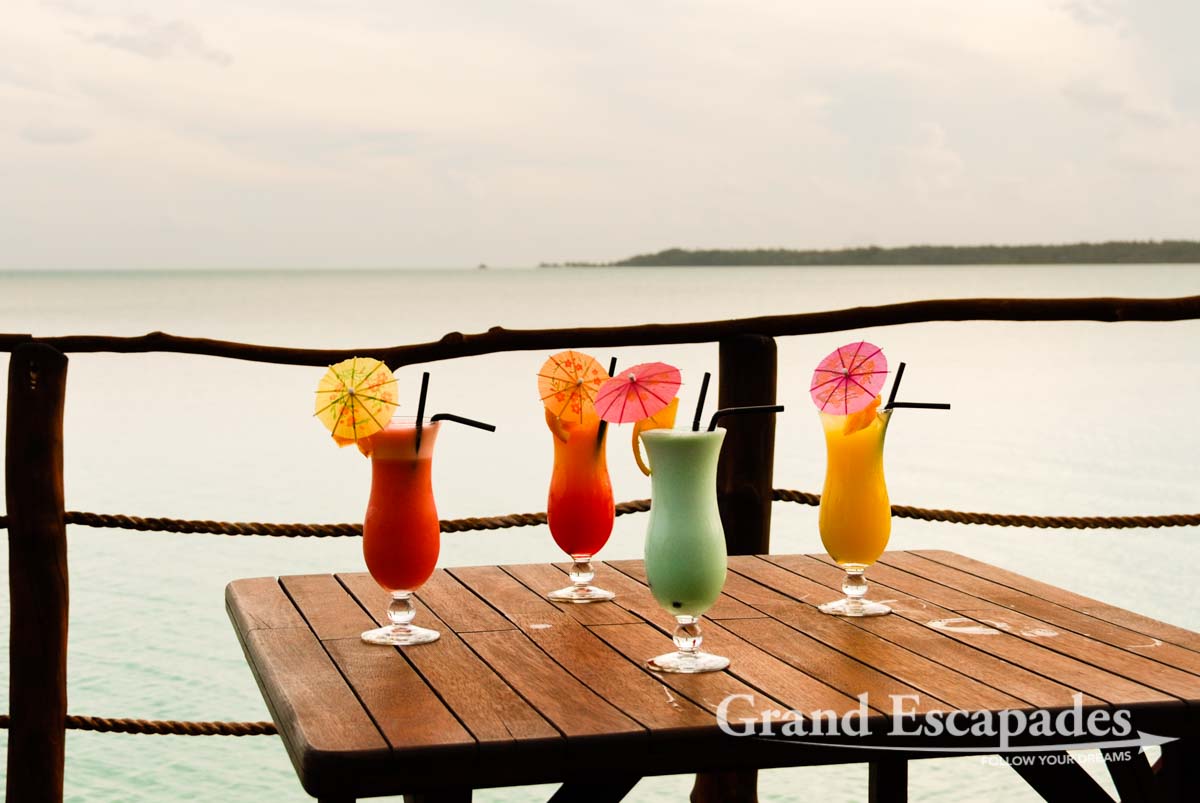A Pricy One Though!
Aitutaki is one of the world most beautiful lagoons surrounded by a triangular-shaped reef. Within the lagoon nestle three volcanic and twelve coral islands in the midst of crystal clear turquoise waters.
Air Rarotonga took us in a small 26-seater aircraft to this little paradise in 40 minutes. There, we checked into Ranginui´s Retreat on the northern part of the atoll. This very quiet place with a view of the lagoon has 8 simple but comfortable bungalows on a pleasant beach from where we can actually swim and a nice swimming pool. The owner, Steve, is very helpful and very relaxed, making you feel welcome at your new home. There are also kayaks for guests.
It is also the most expensive place we have stayed during our whole trip, but we wanted to get at last a real “Pacific Island feeling” staying in one of those bungalows at the beach! As it is the low season, it is very quiet, we really feel in a secluded paradise where we can just rest and turn even lazier than on Rarotonga…
Our bungalow on Ootu Beach is opposite a tiny island, which is solely occupied by Aitutaki Lagoon Resort & Spa, a luxury resort with bungalows for 400 to 600 Euros per night. We also heard that the guest have to pay 68 Euros for the use the ferry after 10:00 pm to go the 50 meters across to the island! It seems they want to keep them prisoners there to spend all their money in that place. We can hardly believe we are enjoying the same view and tranquility like these people for so much less: we pay 70 Euros per night. Ironically, for this huge difference in price, we also share the only downside of this heavenly place: mosquitoes are merciless, especially now in the rainy season.
Nevertheless, this seems to be the most peaceful and quiet place on earth! On the first evening we rode our little scooter, it comes with the bungalow, into the main village 9 kilometers down the western coast. We passed individual spacious bungalows often surrounded by meticulously cut lawns which are then are bordered by lush vegetation.
Despite its beauty, living permanently on any of the Cooks Islands seems less attractive than one might think. What else could be an explanation for the fact that a lot more islanders live in New Zealand and Australia than on the islands themselves?












